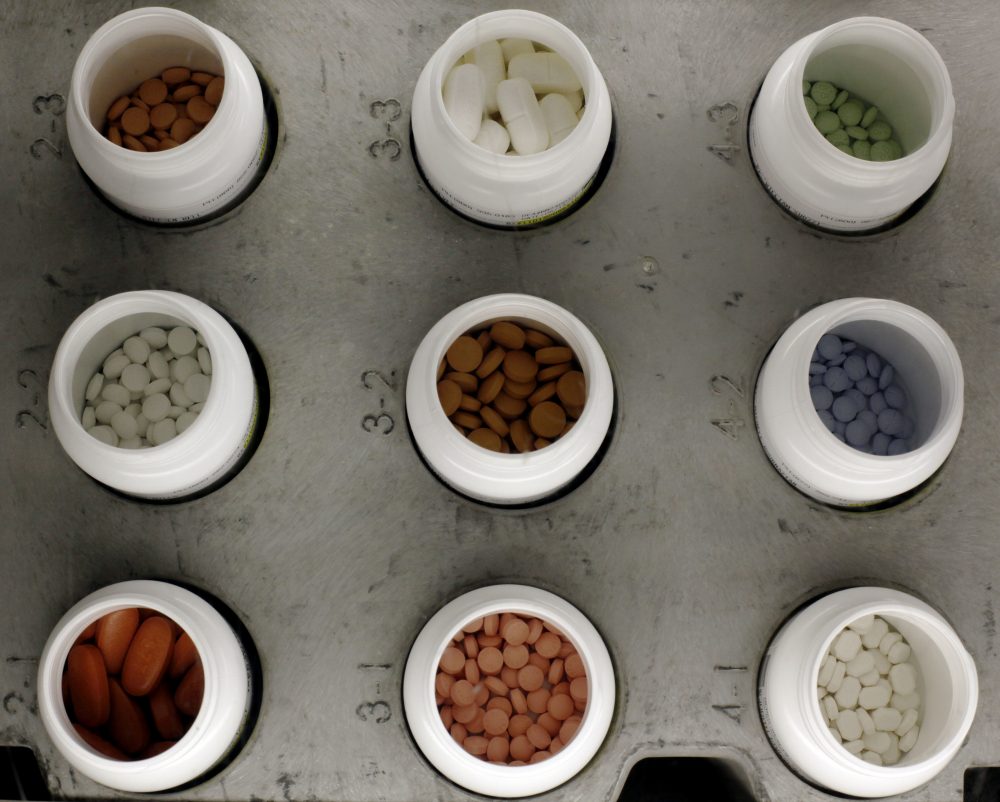Advertisement
Commentary
Why Importing Drugs From Canada Won't Fix High Drug Costs

Politicians from President Donald Trump to Bernie Sanders have been calling for years to allow the importation of certain prescription drugs from Canada. In July, Trump signed an executive order intended to facilitate prescription drug importation. High and rising prescription drug costs are one of vanishingly few issues with bipartisan attention these days, and even bipartisan agreement on some specific policies, like this one. Trump, Sanders and Joe Biden all support prescription drug importation — but importing drugs from Canada won’t solve the U.S.’s prescription drug costs problem.
Here’s what it would actually look like if U.S. states imported prescription drugs from Canada, based on a proposal from Florida’s legislature:
“Under Florida’s Program, eligible prescription drugs will be the same with respect to active pharmaceutical ingredients, strength, purity and route of administration as the FDA-approved product, and will have been initially purchased from either an FDA-approved manufacturer or from their authorized distributors. The FDA already inspects and approves international drug manufacturing facilities ... [and the] same facilities supply prescription drugs in other markets, including Canada."
To decode: The Food and Drug Administration already inspects facilities abroad that produce drugs for both American and Canadian markets. Florida’s plan is to route its share through Canada. In Trump’s words, “It’s a [price] difference like you wouldn’t believe — 70%, 80%, 90%, 30% — but massively lower than the identical drug made in the same plant, the same factory. The same exact drug — same everything, same box, same pill — and yet, it’s 50, 60, 70% lower.”
These drugs would go through additional shipping, inspection and maybe even repackaging — so why would they be cheaper?
This would be like laundering money, except in this case, we would launder the negotiation ...
The savings would come, not from any difference in the drugs themselves, but from a difference between the Canadian and American health care systems. American drug prices are absurdly high — and rising. Canada has a government-run, single-payer health care system and that system negotiates drug prices with companies. America has no analogous negotiation.
To lower those prices, the plan is to add a middleman. Instead of regulating drug prices, we'd buy drugs produced in the same facilities as drugs already imported to the U.S., but first, pass them through Canadian negotiation. The new thing we’d be importing is not the drugs themselves, but the regulation of their prices by another country. This would be like laundering money, except in this case, we would launder the negotiation that the U.S. ought to be doing for itself. Surely, America can do better than that.
Florida Gov. Ron DeSantis said in a press conference, “I’d much rather be here, moving forward,” he said, “than just being on the sidelines chirping, saying, ‘why doesn’t someone do something about it?’”
But importation wouldn’t actually move us forward. It carries real harms. One such harm is system costs: repackaging, relabeling, testing, tracking of the supply chain and reporting to the federal government, which would have to review states’ reports. Even the study that Florida conducted on potential savings must have been very expensive. We’d be paying the overhead for both state and federal governmental oversight. Add to that the environmental costs of additional shipping, packaging, relabeling, etc.
You can’t cure an infection by treating its symptoms, while ignoring its cause.
We’ve all been in situations where, instead of trying to fix an underlying problem, we find workarounds within current systems. But workarounds can get ridiculous and overelaborate. That’s happening here.
And ultimately, drug importation from Canada likely wouldn’t even work as a scalable method of cost savings. A coalition of 15 Canadian clinician advocacy groups wrote to their government that importing drugs to the United States would put Canadian patients at risk. It makes sense when you think about the negotiations as the reason Canada can keep its drug prices down: Increase the demand for medications, and those prices will rise.
Would Canadian government officials even go along with this proposition? We’ve endangered our northern neighbors with our mismanagement of the COVID-19 response. Americans can’t even enter Canada at the moment. Why would Trump think that Canada will compromise their own citizens’ hard-won access to affordable prescription medications, especially right now?
DeSantis’s argument has a more insidious harm, too. The U.S. government, and specifically the FDA, have a responsibility to reduce prescription drug costs — and they’re attempting to use these proposed rules as proof that they’re making meaningful efforts to do so. They’re creating a diversion to ease the onus of a broken system, but that system needs an overhaul, not a bizarrely overcomplicated Band-Aid. Azar has previously called drug importation programs “gimmicks”; he was right.
Azar, DeSantis and Trump present importation as the only vehicle to the cost savings of Canadian drugs. But there’s an actually viable way to get those cost savings: we could negotiate drug prices ourselves, without the absurdist song and dance of attempting to profit from the results of Canada’s negotiations.
Azar’s far from the only politician to use this particular diversion. He has an unlikely bedfellow in this: Bernie Sanders, who first bused Vermont constituents across the Canadian border to buy prescription drugs 20 years ago, and did so again last summer.
For Sanders, this is a stunt, not a panacea. “At the end of the day, nobody in this room thinks this is the solution,” he told a reporter. The “room” was actually a bus, full of Vermonters in need of insulin. Sanders gestured to one of them. “You should not have to be going to another country for this young lady to get the medicine that she needs. We should be doing what the Canadians do.” Namely, regulating prescription drug costs.
President Trump has long named high and rising drug costs as an issue he wants to address. But he wants to do so by separating that issue from the other problems plaguing the American health care system. A piecemeal approach won’t work. Drug costs are a symptom of the systematic ills of our health care system. You can’t cure an infection by treating its symptoms, while ignoring its cause. And you can’t lower the costs of prescription drugs in a sustainable way without the kinds of health care system overhauls that Trump has fought since he came into office.
